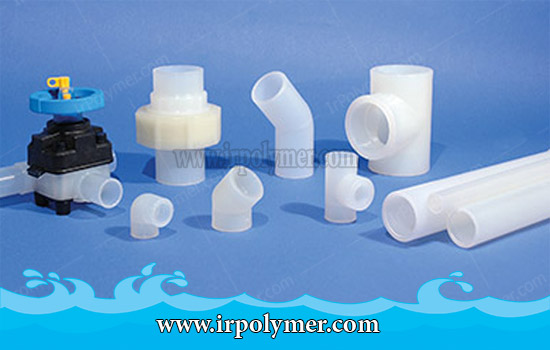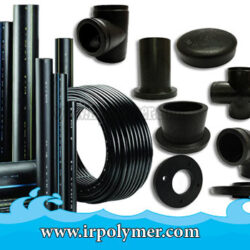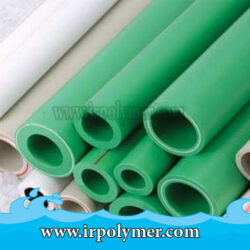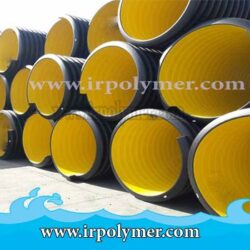Polymer pipes are among the products offered by ABtank, showcasing high capability in supplying industrial piping systems. They provide a wide range of pipes, fittings, valves, and special components for transferring corrosive fluids. To cover different operational conditions in industrial applications, various materials such as PE, PP, CPVC, PVDF, and ECTFE are available.
Types of Polymer Pipes
Polymer pipes come in five different materials, each with unique features and applications:
ABS Pipes
Made from Acrylonitrile Butadiene Styrene, these strong plastics were among the first used in residential plumbing. They are always black, softer than PVC, and primarily used for drain lines, being resistant to sub-zero temperatures.
CPVC Pipes
These are PVC pipes treated with chlorine, increasing their resistance to high temperatures and pressures. They are used in industrial plumbing and residential hot water lines when standard PVC is not suitable.
Polyethylene Pipes
High-density polyethylene is strong and durable, suitable for nearly all plumbing needs. It reduces water pressure due to low friction, allowing water to flow easily.
PEX Pipes
Part of the high-density polyethylene family, these are used in home plumbing systems for both cold and hot water lines, as well as in kitchens and bathrooms. PEX pipes are typically color-coded for easy identification of cold and hot water lines.
PVC Pipes
Known for its versatility beyond water transport, polyvinyl chloride is commonly used for main water lines but not for hot water, as it bends at temperatures above 60°C.
Features and Applications of Polymer Pipes
Polymer pipes are used in acidic environments, seawater, alkaline environments, polar solvents, and food industries. They are known for:
- Chemical Resistance: Resistant to chemicals and blistering.
- Thermal Stability: Thermosetting and heat resistant.
- High Work Efficiency: Excellent adhesion and ease of repairs.
Benefits of Plastic Pipes in Water Lines
While metal, copper, and cast iron pipes are still in use, plastic pipes offer several advantages:
Ease of Installation
Easily cut to any shape and size, reducing installation work and equipment.
Non-Reactive
Unlike metal pipes, plastic pipes do not react when different types of pipes are connected, preventing corrosion and damage.
Corrosion Resistance
Plastic pipes do not rust after prolonged contact with water and other liquids.
Low Thermal Conductivity
Can handle a wide range of temperatures without warping or cracking, and maintain the temperature of water inside without causing condensation.
Color-Coded and Marked
Plastic plumbing pipes are usually color-coded and marked on the outside to indicate diameter, pressure, and type of plastic. This helps in easy identification and replacement if necessary.




